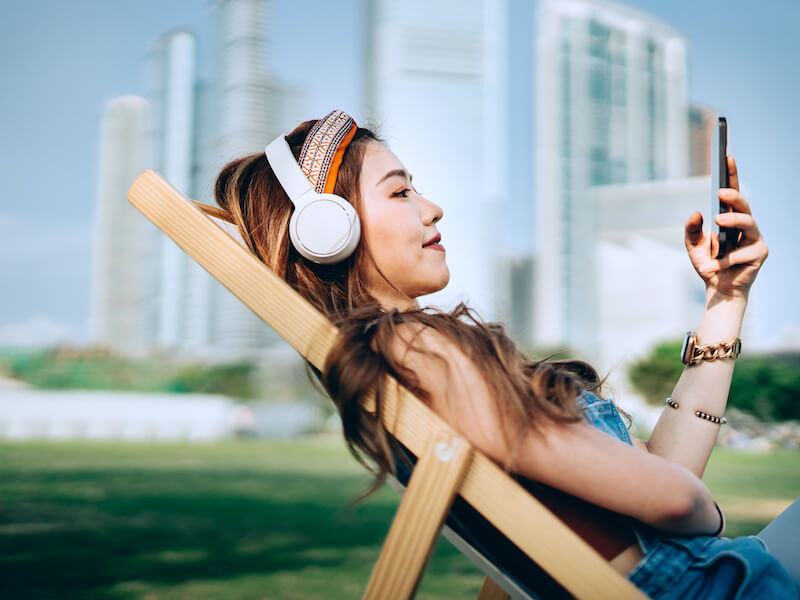
Aiden loves music. While he’s out running, he listens to Pandora, while working it’s Spotify, and he has a playlist for everything he does: cardio, cooking, gaming, you name it. His entire life has a soundtrack and it’s playing on his headphones. But irreversible hearing damage might be happening as a consequence of the very loud immersive music he enjoys.
There are ways to enjoy music that are healthy for your ears and ways that aren’t so safe. However, most of us opt for the more hazardous listening choice.
How can listening to music result in hearing loss?
Your ability to hear can be compromised over time by exposure to loud noise. We’re used to thinking of hearing loss as an issue associated with aging, but more recent research is discovering that hearing loss isn’t an intrinsic part of aging but is instead, the outcome of accumulated noise damage.
It also turns out that younger ears are especially susceptible to noise-induced damage (they’re still developing, after all). And yet, the long-term harm from high volume is more likely to be dismissed by younger adults. So because of widespread high volume headphone use, there has become an epidemic of hearing loss in younger individuals.
Is there a safe way to enjoy music?
It’s obviously hazardous to enjoy music on max volume. But simply turning the volume down is a safer way to listen. Here are a couple of basic recommendations:
- For adults: 40 hours or less of weekly listening on a device and keep the volume lower than 80dB.
- For teens and young children: 40 hours is still okay but decrease the volume to 75dB.
About five hours and forty minutes per day will give you about forty hours a week. Though that might seem like a while, it can seem to pass quite quickly. But we’re trained to monitor time our entire lives so most of us are rather good at it.
The harder part is keeping track of your volume. On most smart devices, smartphones, and televisions, volume isn’t calculated in decibels. It’s measured on some arbitrary scale. Maybe it’s 1-100. Or it could be 1-10. You might not have any idea how close to max volume you are or even what max volume on your device is.
How can you listen to music while monitoring your volume?
It’s not very easy to tell how loud 80 decibels is, but fortunately there are some non-intrusive ways to tell how loud the volume is. Distinguishing 75 from, let’s say, 80 decibels is even more puzzling.
So using one of the many noise free monitoring apps is greatly recommended. Real-time volumes of the noise around you will be available from both iPhone and Android apps. That way you can track the dB level of your music in real-time and make adjustments. Your smartphone will, with the proper settings, inform you when the volume goes too high.
As loud as a garbage disposal
Generally, 80 dB is about as loud as your garbage disposal or your dishwasher. That’s not too loud. It’s an important observation because 80dB is about as much noise as your ears can cope with without damage.
So you’ll want to be extra aware of those times when you’re moving beyond that volume threshold. If you happen to listen to some music beyond 80dB, don’t forget to limit your exposure. Maybe listen to your favorite song at full volume instead of the whole album.
Over time, loud listening will cause hearing problems. You can develop hearing loss and tinnitus. Your decision making will be more informed the more aware you are of when you’re going into the danger zone. And safer listening will hopefully be part of those decisions.
Call us if you still have questions about keeping your ears safe.
